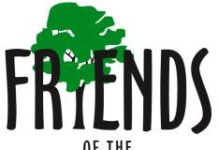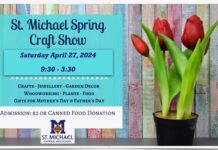The Times sat down with John Barclay, North Grenville Councillor, to talk about the recently announced Waste Management Program that will be bringing in a green bin system, as well as new measures for handling garden waste and bulky items, beginning on February 1. I began by noting that the new program had to vie with the prison and covid for the attention of residents.
John Barclay: Yes, everything at the end of your driveway is changing. But not until February next year. The only thing that’s going to change in the meantime is the look of the trucks that show up.
NG Times: And the price of bag tags and the range of bag tags.
John Barclay: Yes. Well, you won’t really need any of those bulky item bag tags, or leaf and yard waste bag tags, other than, I think we’re planning on April and October. There’ll be a week of yard waste, followed by a week of bulky item pickup, followed by a second week of yard waste and second week of bulky items. So you only have to keep track of a month in the Spring and a month in the Fall. Otherwise, it’s regular bag tags, different price. And there’ll be some transition. But you’ll need half as many bag tags if you get with the program.
NGTimes: I think it is good to point out again that this is very much a proactive step when it comes to the organics because of provincial changes, and what they’ve announced. That this is something that is going to have to happen. And I think this council is trying to get there before they have to.
John Barclay: Yes, I think that that’s been the dominant theme. But there’s going to be bigger changes in the recycling sector, though. Those changes are really big, but they’re not really going to affect the way we do business with recycling. Those changes are going to be implemented between 2023 and 2025, when it’s not going to be our responsibility, the municipality’s responsibility, any longer to pick up and process recycling.
Now it’ll become the producer’s responsibility. All the Coca Cola’s and Johnson & Johnsons and all these, they’re going to have to act together and have a consortia that will be responsible for that. There’s two things that can happen. We can just wash our hands of it, and watch the new trucks that pick up and take the recycling away, or the producers can actually contract with the municipality and pay us to do that, to do the job.
Certainly banning organics from the landfill is going to be a big change. But the government hasn’t signaled exactly when that is going happen. But, as you know, the sooner that happens, the better. At the rate we’re going, they predicted we’d have to open up 15 new landfill sites in the province of Ontario, unless we change. So, we’re adopting this change early with this new contract. That’s why we’re here in November with a brand new five year contract. And those five years are going to bridge us into the end of that whole recycling change. So, by 2025, the plan is that the municipality will no longer be financially responsible, or practically responsible, for recycling.
North Grenville’s got four landfill sites. We’ve closed two and we’ve moth- balled the other two. And we’re shipping, at a cost, all our waste to Moose Creek. Well, it’s going to be full too. Moose Creek is going to say: no, thank you. China has said no, thank you, sir. We’ve got to be responsible for the garbage we create. We do waste audits. We’ve got staff that goes and randomly picks up garbage bags, and puts it on the table and goes, well, this is what’s in it. And approximately half of what’s in people’s garbage, the average person’s garbage bag, can be diverted to organic processing. So, theoretically, bag tags go up a buck, but you’re going to use half as many. By my maths, you save 75 ¢. My garbage is different because I compost. That’s a whole other issue.
NG Times: Right, that’s one people like to talk about. I already compost, so, why do I need a green bin?
John Barclay: Well, you need a green bin for coffee grounds, filters, tea- bags, egg shells, food leftovers. That goes in my garden compost. But paper towels, tissues, soiled pizza boxes, sugar and potato, paper bags, cold fireplace ash, and kitty litter, dog waste meat, fish, scrap, bones.
NG Times: But there’s two things I’m interested in getting clarification on, though. First, over the last few years one of the biggest problems when it came to recycling, was the kind of plastics that could be recycled. People with horses, or on farms, couldn’t recycle the heavy plastic feed bags, and so on. Are they covered in this?
John Barclay: No. Well, it has to go somewhere. And if there’s no place for it to go, unfortunately we’re stuck, for the time being. We’re lucky that our processor is Cascades, and they’re in the recycling business. So all that pulp and paper, I mean, I work at the grocery store and a lot of the cardboard boxes are made by Cascades. So the pulp and paper, the fibre, is immediately dealt with by them. It’s the end use. You have to have a market for it, otherwise it’s very, very expensive to deal with.
Nobody’s paying for the agricultural grain wraps, or whatever. As soon as the market opens for it, absolutely. And as soon that’s available, I’m sure we’ll be all over it. Staff is dealing with issues of waste management daily, and they’re up to speed on what’s going on. They’ll tell us, probably, before anybody else, when there’s a place for this stuff.
The entire interview can be heard on our Conversa- tions with… podcast on our website: ngtimes.ca.







